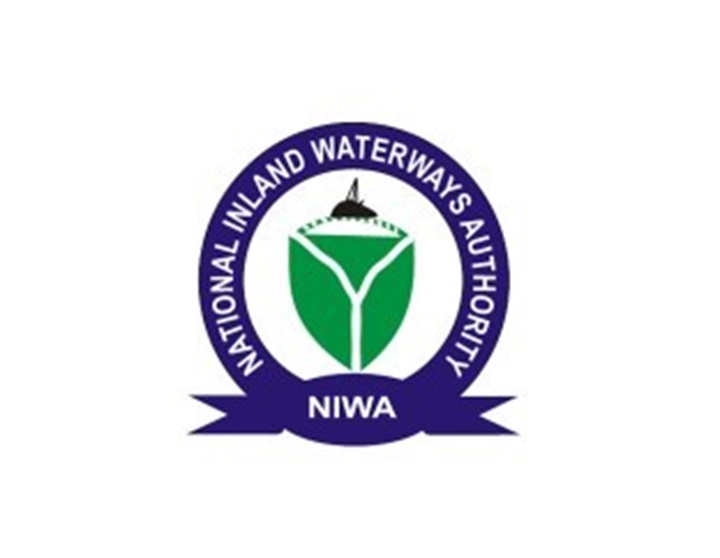The National Inland Waterways Authority (NIWA) has expressed concern over the poor utilisation of Nigeria’s waterways, despite the significant financial investments made to develop and modernise the sector. The agency said that the country’s inland water transport system remains largely untapped, even though billions of naira have been committed to dredging, infrastructure development, and safety enhancement projects over the years.
Speaking during a press briefing in Abuja, NIWA’s Managing Director, Bola Oyebamiji, lamented that Nigeria continues to rely excessively on road transport for the movement of goods and passengers, while the waterways — which offer a cheaper and more environmentally friendly alternative — remain underused. He stressed that this imbalance has placed unnecessary pressure on the nation’s road networks and led to higher logistics costs.

Oyebamiji said, “We have invested heavily in dredging, infrastructure, and safety equipment to make our inland waterways navigable and efficient. However, the level of usage remains very low compared to the available capacity. This situation calls for urgent attention from all stakeholders to ensure we maximise the benefits of these investments.”
He pointed out that the federal government, through NIWA, has implemented several projects aimed at reviving the inland water transport system. These include the dredging of major rivers such as the Niger and Benue, the construction of modern jetties, and the procurement of patrol and rescue boats to ensure safety along navigable channels. Despite these efforts, he said, cargo movement and passenger traffic along the waterways have not matched expectations.
According to him, the lack of private sector participation, poor intermodal connectivity, and inadequate public awareness about the potential of water transport have contributed to the underperformance of the sector. “Many Nigerians still see water transport as unsafe or unreliable, whereas it remains one of the most efficient means of moving bulk cargoes and reducing road congestion,” Oyebamiji added.
He called for renewed collaboration among federal and state governments, private investors, and logistics operators to integrate waterways into Nigeria’s national transport system. The NIWA boss emphasised that effective use of the waterways could ease pressure on the roads, reduce carbon emissions, and open new trade corridors for agricultural and industrial goods.
“We are engaging with relevant agencies such as the Nigerian Shippers’ Council, the Nigerian Ports Authority, and the National Inland Waterways Transport Operators to promote synergy and ensure the waterways contribute meaningfully to our economy,” he said.
Oyebamiji noted that NIWA is working on several reforms to attract investors and enhance regulatory efficiency. These include streamlining licensing procedures, improving data collection for navigation safety, and enforcing compliance with environmental and safety standards. He disclosed that the authority is also developing a comprehensive Waterways Master Plan that will guide future infrastructure investments and operational frameworks.
“Beyond government investment, we are creating an enabling environment for private investors to participate in port terminal operations, ferry services, and cargo movement. The goal is to make inland waterways transport a commercially viable and sustainable alternative for businesses,” he explained.
The NIWA chief also revealed that the agency is strengthening collaboration with state governments to establish local ferry terminals and community jetties in riverine areas. According to him, such initiatives would improve accessibility and promote economic activities in remote communities that depend on waterways for transportation and trade.
He emphasised that full utilisation of the waterways could significantly contribute to Nigeria’s economic diversification drive, reduce transportation costs, and improve regional trade competitiveness. “Water transport is a key driver of industrial and agricultural growth. Once we optimise its usage, we will witness improved movement of goods and services across the country,” he noted.
Industry stakeholders have commended NIWA for its ongoing reforms but urged the agency to intensify public awareness campaigns and ensure strict enforcement of safety regulations to build confidence among users. Maritime experts also suggested that integrating water transport with rail and road networks would enhance cargo movement efficiency and attract more commercial operators.
Oyebamiji reaffirmed NIWA’s commitment to transforming the nation’s inland water transport system, saying that the authority remains focused on harnessing Nigeria’s vast network of rivers, creeks, and lakes for national development. “The waterways are a natural gift that can change the face of transportation and commerce in Nigeria. Our responsibility is to ensure they are safe, efficient, and fully utilised,” he concluded.
With continued reforms, strategic partnerships, and stronger enforcement mechanisms, NIWA believes the inland waterways can play a major role in reducing logistics challenges, creating jobs, and supporting Nigeria’s vision for sustainable economic growth.
Support InfoStride News' Credible Journalism: Only credible journalism can guarantee a fair, accountable and transparent society, including democracy and government. It involves a lot of efforts and money. We need your support. Click here to Donate
